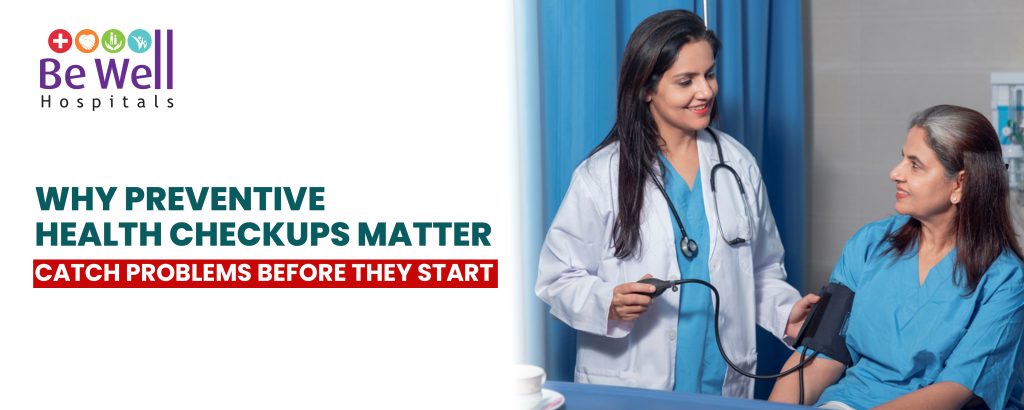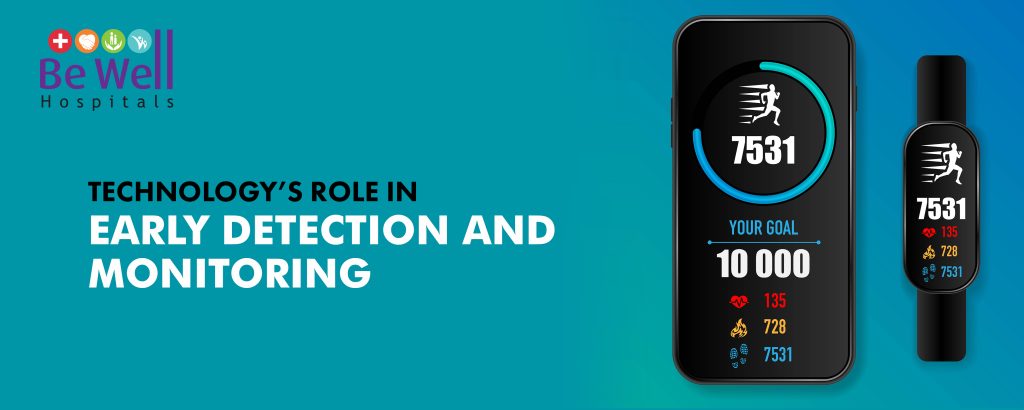
Introduction
In today’s world, where busy routines, fast food, and stress dominate our lives, health often takes a backseat—until something goes wrong. But by the time symptoms appear, the body may already be under serious stress. This is where preventive health checkups come in. They help catch diseases in their earliest stages—when they are easiest to manage or even reverse. From young adults managing screen fatigue to the elderly preventing chronic complications, preventive care is no longer optional. This blog explores how regular health screenings protect against lifestyle diseases, reduce long-term costs, and empower people to take control of their health early—before it’s too late.
What Are Preventive Health Checkups?
Preventive health checkups are regular tests and screenings designed to detect potential health issues before symptoms show. They may include blood tests, physical exams, heart evaluations, diabetes screening, cancer markers, and more. These tests are typically done on individuals who feel healthy and symptom-free, aiming to catch problems early.
Unlike diagnostic care—which is reactive and done after a person feels unwell—preventive checkups are proactive. They are about staying one step ahead of diseases by finding early warning signs and responding before complications arise. In a world where many diseases develop silently, this approach is a life-saving shift.
Lifestyle Diseases on the Rise: Why We Need Prevention More Than Ever
Lifestyle diseases such as diabetes, hypertension, heart disease, and obesity have reached alarming levels. Unhealthy diets, lack of exercise, increased screen time, smoking, alcohol use, and chronic stress contribute significantly to this rise. What’s even more concerning is that these illnesses are increasingly affecting younger populations.
These diseases often develop slowly and quietly. A person may live with high blood sugar or blood pressure for years without symptoms—until serious complications like stroke, kidney failure, or heart attack occur. Preventive health checkups can detect these conditions in their early phases, allowing for timely lifestyle modifications and medical interventions.
Early Detection Can Save Lives
Spotting diseases early significantly improves the chances of successful treatment. For example, detecting prediabetes through a simple blood test can prompt dietary changes and exercise before full-blown diabetes develops. Similarly, identifying high cholesterol early can prevent heart disease.
Regular checkups not only protect the individual but also reduce the burden on families and healthcare systems by preventing emergencies and hospitalizations. Early detection translates to better quality of life, fewer complications, and increased longevity.
Modern Lifestyles: Convenience Comes with Health Risks
Technology has made life easier—but also more sedentary. Desk jobs, excessive screen use, irregular sleep, processed food, and high stress levels have become the norm. These habits are silently damaging physical and mental health.
Many people skip meals, consume too much sugar, and rely on fast food, all of which strain the body’s systems. Over time, these behaviors can cause inflammation, hormonal imbalances, and organ stress. Preventive checkups offer a way to monitor the body amidst this modern chaos—providing insights into how daily habits are affecting health and guiding necessary changes.
Technology’s Role in Early Detection and Monitoring

Advancements in medical technology have revolutionized preventive care. Wearables like fitness trackers help people monitor their heart rate, sleep quality, and activity levels daily. Health apps encourage hydration, track medication schedules, and even monitor mood.
In hospitals, artificial intelligence, advanced imaging, and lab automation allow for faster, more accurate diagnostics. Teleconsultations make it easier to access expert care from anywhere. Electronic health records enable doctors to spot trends and take preventive action quickly. Together, these technologies turn prevention into an everyday habit, not just a once-a-year routine.
Cost Savings Through Prevention
Preventive care is not only good for your health—it’s good for your wallet. Early diagnosis and treatment are far less expensive than managing advanced disease. A blood pressure pill costs far less than treating a stroke or heart attack. Similarly, catching early-stage cancer can eliminate the need for expensive surgery or chemotherapy.
Many insurance providers now cover preventive health screenings, recognizing their role in long-term savings. By investing a small amount in checkups today, individuals can avoid massive medical bills in the future.
Why Preventive Checkups Matter More with Age
As we age, the body undergoes natural changes. Muscle mass decreases, metabolism slows, and the risk of chronic illness rises. That’s why regular checkups become even more important with age.
Elderly individuals benefit from screenings for bone density, vision and hearing loss, memory changes, and mental health assessments. Doctors can adjust medications, monitor ongoing conditions, and recommend diet or exercise plans suited to senior needs. These checkups help maintain independence and prevent sudden health declines, ensuring a better quality of life during the golden years.
Mental Health: A Key Part of Preventive Care
Mental health often gets overlooked in routine checkups—but it plays a vital role in overall well-being. Stress, anxiety, and depression can silently affect sleep, appetite, immunity, and productivity. For many, these issues go unrecognized until they lead to burnout or severe disorders.
Incorporating mental health screenings into regular checkups can help detect early signs of emotional distress. Whether it’s workplace stress, postpartum depression, or early memory decline, early intervention with counseling, therapy, or lifestyle changes can prevent escalation. A healthy mind supports a healthy body, making mental health screening a vital part of preventive care.
How to Make Preventive Checkups a Lifestyle Habit
Integrating preventive checkups into your lifestyle starts with awareness. Understand your risk factors—age, family history, stress levels, and current health status—and speak with your doctor to determine the right tests and frequency.
Use calendars, mobile apps, or wearable reminders to schedule appointments. Opt for comprehensive annual or bi-annual checkup packages that cover heart health, metabolic health, kidney function, liver health, and basic screenings for cancers or hormonal issues.
Make it a family affair. Encourage your spouse, parents, and even teenagers to go for checkups. Prevention is a shared responsibility that can protect your entire household.
Preventive Health for Every Age Group
- Children & Teens: Focus on immunizations, nutrition checks, growth milestones, vision, and dental screenings.
- Young Adults (20s–30s): Monitor BMI, stress levels, reproductive health, thyroid function, and basic heart markers.
- Middle Age (40s–50s): Screen for cholesterol, diabetes, cancers (like breast, cervical, and prostate), and bone health.
- Seniors (60+): Regularly assess cognitive function, osteoporosis, hearing, cardiovascular health, and medication interactions.
A tailored preventive care plan ensures that each life stage is protected.
Conclusion
Preventive health checkups are more than just routine tests—they are a powerful tool to stay ahead of disease, protect your quality of life, and reduce long-term healthcare costs. In a world where lifestyle diseases and stress-related conditions are on the rise, prevention is not a luxury—it is a necessity. Whether you’re a busy professional, a young parent, or a senior citizen, early detection is the key to lifelong wellness.
At Be Well Hospitals, we believe in empowering individuals to take charge of their health before illness strikes. Our preventive checkup packages are designed to provide comprehensive care tailored to every age and need. Don’t wait for symptoms—take action today. Schedule your preventive health checkup at Be Well Hospitals by calling 9698 300 300 or visit your nearest Be Well Hospitals. Your health is your greatest wealth—protect it proactively.
